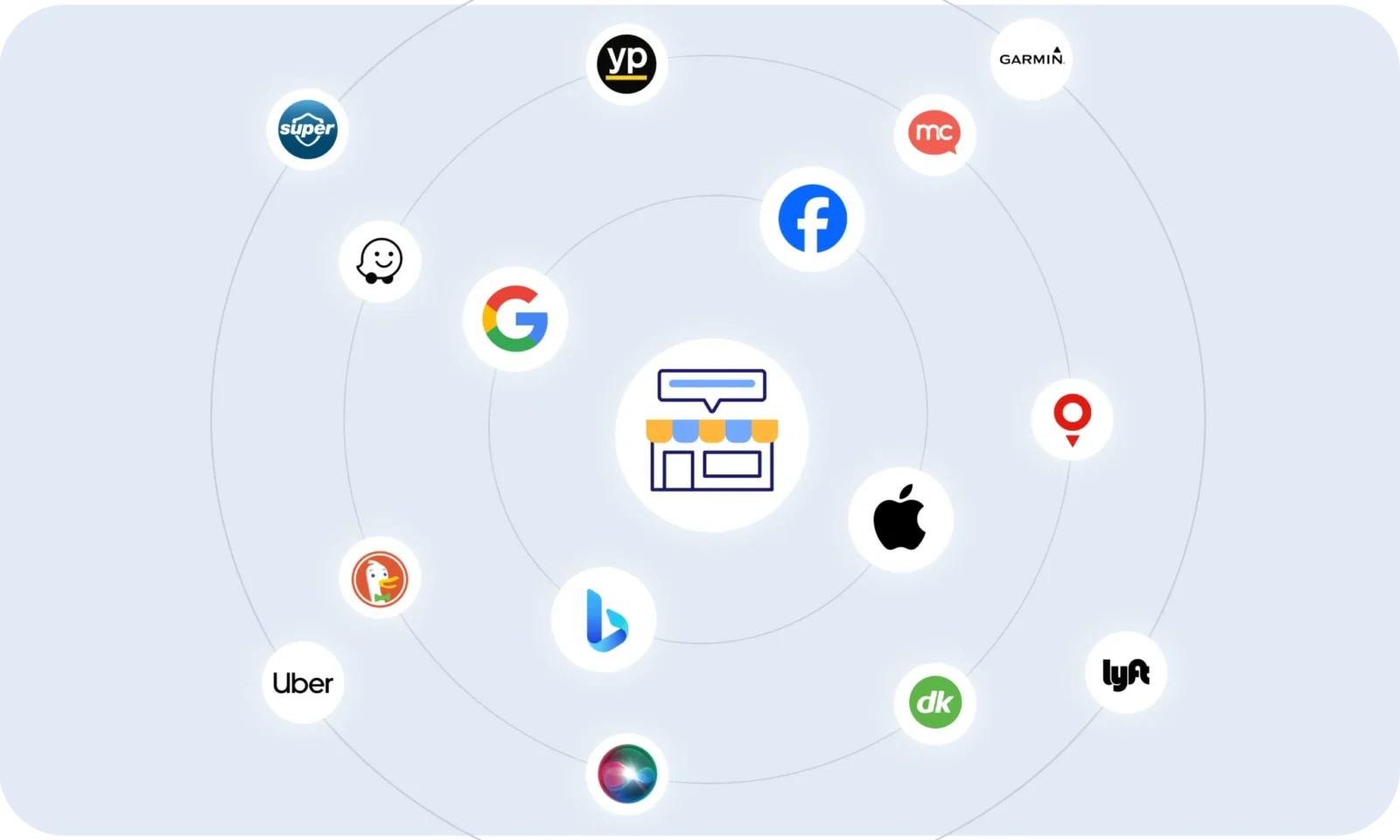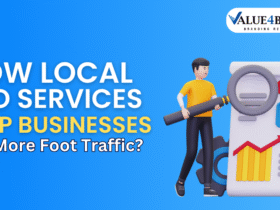What is Local Business Listing Management?
A local listing is an online profile showcasing your business’s location, making it easy for customers to find and contact you. It typically includes essential details like your business name, address, phone number (NAP), and hours of operation.
Local listing management involves adding and maintaining this business information across top directories like Google, Bing, Facebook, and Apple Maps. Consistency and accuracy across your listings are crucial for improving visibility, helping your business appear in “near me” searches, voice assistants like Siri and Alexa, and popular navigation apps. Local listings are vital for businesses serving a local audience, whether you have a physical storefront (like retail shops and medical practices) or offer services within specific areas (like plumbing, real estate, or consulting).
Why Local Business Listings Matter
When customers search for a business “near me,” they rely on the accuracy of business listings to decide where to go. From phone numbers to hours of operation, every piece of information should be accurate and up-to-date across platforms to avoid confusion and loss of customers. Inconsistent or outdated information can reduce trust, harm search rankings, and lead to missed opportunities.
Here’s why managing local business listings is critical:
-
- Improved Local SEO: Accurate and consistent listings enhance your chances of ranking higher in local search results. Search engines prioritize businesses with verified, consistent data across multiple platforms.
-
- Visibility Across Devices: Local listings improve how easily customers find your business when searching for services, whether through desktop search, mobile, or voice assistants like Siri, Alexa, and navigation systems.
-
- Increased Customer Trust: Customers expect consistency. Having different information on different platforms can erode trust and lead to customer confusion and dissatisfaction. For example, if a customer arrives to find your business closed because your online hours are wrong, they may not return.
Common Challenges in Managing Local Business Listings
Managing your business listings can be overwhelming, especially if you’re present on several directories. The most common challenges include:
-
- Inconsistent Information: Updating information manually can result in errors—such as incorrect business names, addresses, or phone numbers (NAP). This creates confusion and damages your credibility.
-
- Multiple Platforms: Keeping your listings up-to-date across numerous platforms (Google, Facebook, Apple Maps, Bing, etc.) is time-consuming and often prone to errors.
-
- Duplicate Listings: Multiple or outdated listings can confuse customers and negatively impact your SEO rankings.
These challenges make it vital to have an automated system that ensures your business information is consistent across platforms without requiring endless manual updates.
Prioritize High-Impact Listing Sites
You don’t need to be listed on every review site or directory. Instead, focus on the high-traffic platforms that will have the biggest impact on your visibility. Major sites like Google, Bing, Apple Maps, and Facebook get the most user traffic and play a key role in boosting your local search presence. You can maximize your results by prioritizing these influential directories without spreading your efforts too thin.
Google Business Profile
Your Google Business Profile (GBP) is a critical asset for local SEO. Start by claiming your profile if you haven’t already. Then, make sure your profile is complete and up-to-date:
- Update Your Information: Include accurate details like your address, contact info, business hours, and holiday hours. Incorrect information can frustrate customers and harm your reputation.
- Verify Your Profile: Verified businesses are more likely to be trusted by customers. Verify your Google Business Profile to increase your credibility.
- Use Keywords: Incorporate relevant keywords into your business description. While this won’t guarantee higher rankings, it can help when combined with other local SEO practices.
Apple Business and Bing Listings
Don’t forget about other major platforms like Apple Business and Bing, which play a crucial role in local search visibility.
Apple Business:
- Claim your business listing through Apple Business Connect. Ensure your details are accurate, and add high-quality photos.
- Many Apple users rely on Siri and Apple Maps for local searches, so keeping your listing current helps you reach these customers effectively.
Bing Places for Business:
- Visit Bing Places for Business to claim your listing. If you’ve already set up your Google Business Profile, you can import your information to save time.
- Keep your information accurate and use relevant keywords to help improve visibility on Microsoft devices and search engines.
Industry-Specific Directories
In addition to Google, Facebook, Apple Maps, and Bing, claim and update your business profiles on top industry-specific sites, such as Angi for home services, Healthgrades for medical practices, and DealerRater for automotive businesses. These specialized directories cater to niche audiences and can help increase visibility within targeted markets, ensuring potential customers can find accurate and up-to-date information about your business.















